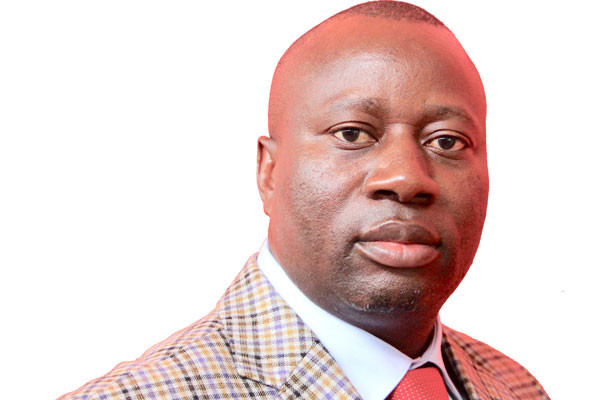
Institute of Directors Zimbabwe (IoDZ) former chairperson Kangai Maukazuva (KM), whose term of office has come to an end, says directors should understand that their role is strategic and not operational. According to him, a lot of boards fail to achieve the organisational goals by creating a conflict between themselves and boards. Find below excerpts of the interview with the Zimbabwe Independent (ZI):
ZI: Your term as IoDZ chairperson has come to an end. Please tell us about your experiences?
KM: In 2018, I purposefully enrolled on the IoDZ Advanced Certificate in Company Direction. I did not envisage myself taking the challenge to lead the same institution through the turbulent times of Covid-19. Being a councillor and then taking over the chairmanship of IoDZ was an awarding period of enthusiasm, passion for corporate governance and visionary leadership.
I truly enjoyed my experience in the role of chairperson as it allowed me to lead and inspire a diverse team towards achieving IoDZ’s goals. It was indeed an opportunity to make strategic decisions, provide guidance, and solidify the vision for IoDZ and it was truly fulfilling.
I deeply appreciated the trust and support given to me by the councillors, management team and the members. The challenges that came along the way have allowed me to grow both professionally and personally.
The satisfaction of seeing the positive impact of the team’s collective effort on IoDZ’s success is immeasurable and being chairperson of IoDZ was an experience that I will always cherish and be grateful for.
ZI: Given another chance, would you throw your hat in the ring again?
KM: I would, but not in the near future. It’s a position that I can review later. My focus right now is to complete my PhD studies in Business Leadership. I started this journey in 2019 and I am now yearning for results.
- IoDZ pushes for stronger audit committees
- Africa needs funding to reduce impact of climate change: Afreximbank
- Reserve Bank slashes policy rate
- IoDZ honours excelling directors
Keep Reading
ZI: What was your major focus during your tenure? Do you think you achieved these goals?
KM: I am proud to say that we achieved remarkable results during my tenure as the IoDZ chairperson. We meticulously developed strategies in two broad areas: internal plans that would help IoDZ achieve its financial goals and external plans that would help us interact and engage with the stakeholders we serve.
The results were phenomenal. Firstly, we managed to sustain the business of the institute during the Covid era and introduced digital training and seminars. Secondly, we resolved issues of going concern, which was crippling the institute, cleared 80% of legacy debts, transformed the organisation from loss to profit making.
Externally, we achieved remarkable growth in membership on both corporates and individuals and resuscitated broken relationships with major brands. We signed several memorandums of understanding with like-minded institutes, and participated in the national anti-corruption strategies.
The process of engagement yielded positive results as reflected by the growth in sponsorship and corporates participating on various IoDZ platforms. We created the Chairman’s Forum and introduced the Future Directors in order to engage with different levels of professionals and expand the IoDZ offering to nurturing young talent.
The quality of brands, new members and IoDZ’s ability to attract a diverse team of new high-ranked professionals into council is a clear indication that we met our goal to restore trust from stakeholders.
ZI: What still needs to be done?
Corporate governance dynamics have expanded tremendously to include issues such as environmental, social and governance (ESG), which I believe will need the institute’s priority attention.
Further engagement is important and expanding the institute’s presence and impact in playing the advocacy of good corporate governance. Having young people and women on boards create the right diversity that organisations can harness for success.
ZI: Tell us about the level of expertise in Zimbabwe’s boards?
KM: My view on the level of expertise of boards in Zimbabwe is the same as the global challenges that are being faced worldwide. As the world is changing fast, businesses are facing multiple risks and challenges ranging from cyber security, technology risks, and climatic changes amongst a full basket of other issues.
It is critical for boards to continue to receive training and review their composition to include a diversity of skills. In addition to IoDZ, we now have several organisations in Zimbabwe who are pushing courses and training on corporate governance and ESG issues.
It is important for boards to embrace these courses and even extend to their senior managers.
ZI: There have been concerns that the same people are being recycled in Zimbabwean boards. What is your view about this?
KM: My view is based on the perspective of board stewardship. Choosing the right stewards for the business assets, who can provide the right direction and oversight on strategy, is very critical.
There is no doubt, finding the right people to take the roles is not easy and that is why those who are experienced tend to be engaged and the challenge rests with them to train others and make recommendations to management to train with IoDZ as well.
My personal board leadership development started from a comment made by Much Masunda in one of the conversations we had and I was challenged to join the IoDZ training from that day, which I accomplished.
ZI: Is this an indication of skills shortages in the country?
KM: As explained above, it is about stewardship and skills as well. We need to mould the right models and character that can be trusted to serve.
ZI: Take us through the prolonged cycles of firm failures, and corporate governance in Zimbabwe?
KM: A lot of strides are being made to improve corporate governance in Zimbabwe and companies are adopting them both in private and public entities. The establishment of the national code of ethics for directors, the Zimcode, is one such a foundation for upholding good corporate governance practices.
The government established the Framework for Governance for State-owned Enterprises and Parastatals, the Public Entities Corporate Governance Act, as well as the review the Company Act to become the new Companies and other Business Act all speaks to initiatives to curb malpractices.
I believe that there is an inclusive approach when we look at the National Code of Corporate Governance and stakeholders like Zimbabwe Anti-Corruption Commission and the media can also play a significant role in disseminating information that can avert failures.
ZI: From your experience in the past year, what challenges do boards of directors in Zimbabwe face? What steps is IoDZ taking to deal with this?
KM: We have touched on the issues of the fast changing world and the business environment. There is just a lot of volatility, uncertainty, complexity and ambiguity that makes board roles challenging.
Emerging trends such as dealing with cybercrimes, climate changes, the environment, and so on makes it very challenging in addition to making sure that the organisations are performing and achieving shareholder expectations. Customer expectations are also changing there is demand for companies to fulfil their promises. The list goes on.
IoDZ should continue to play its advocacy for good corporate governance, setting the tone and mentoring its members to be role models of today and the future.
ZI: The issue of gender imbalance on boards, what is your view on this and what needs to be done to achieve gender parity?
KM: It is a known fact from research that boards that embrace gender diversity tend to be successful. The numbers of women on boards is still very low and we need to encourage women to take board positions whenever opportunity arises. Both women and the millennials need to take this challenge and be part of leadership from a board perspective.
IODZ now has Women on Boards platform and Future Directors to accommodate and mentor both women and young prospective members to
ZI: Your word to directors, and aspiring director?
Firstly, directors should understand that their role is strategic and not operational. It is important to separate oversight role from management role. A lot of boards fail to achieve the organisational goals by creating a conflict between themselves and boards. Boards perform through management.
Secondly, understand the business and read your board packs. For you to contribute, you have to understand where the business is going. A captain who can’t read a compass has no direction to follow. Therefore, to give direction on strategic, you must be informed. You should have the facts and data on your business.
Lastly, embrace the new trends. Digital is here, and so is cyber crime. We have the responsibility to protect, preserve and scale up our organisations as board stewards.







